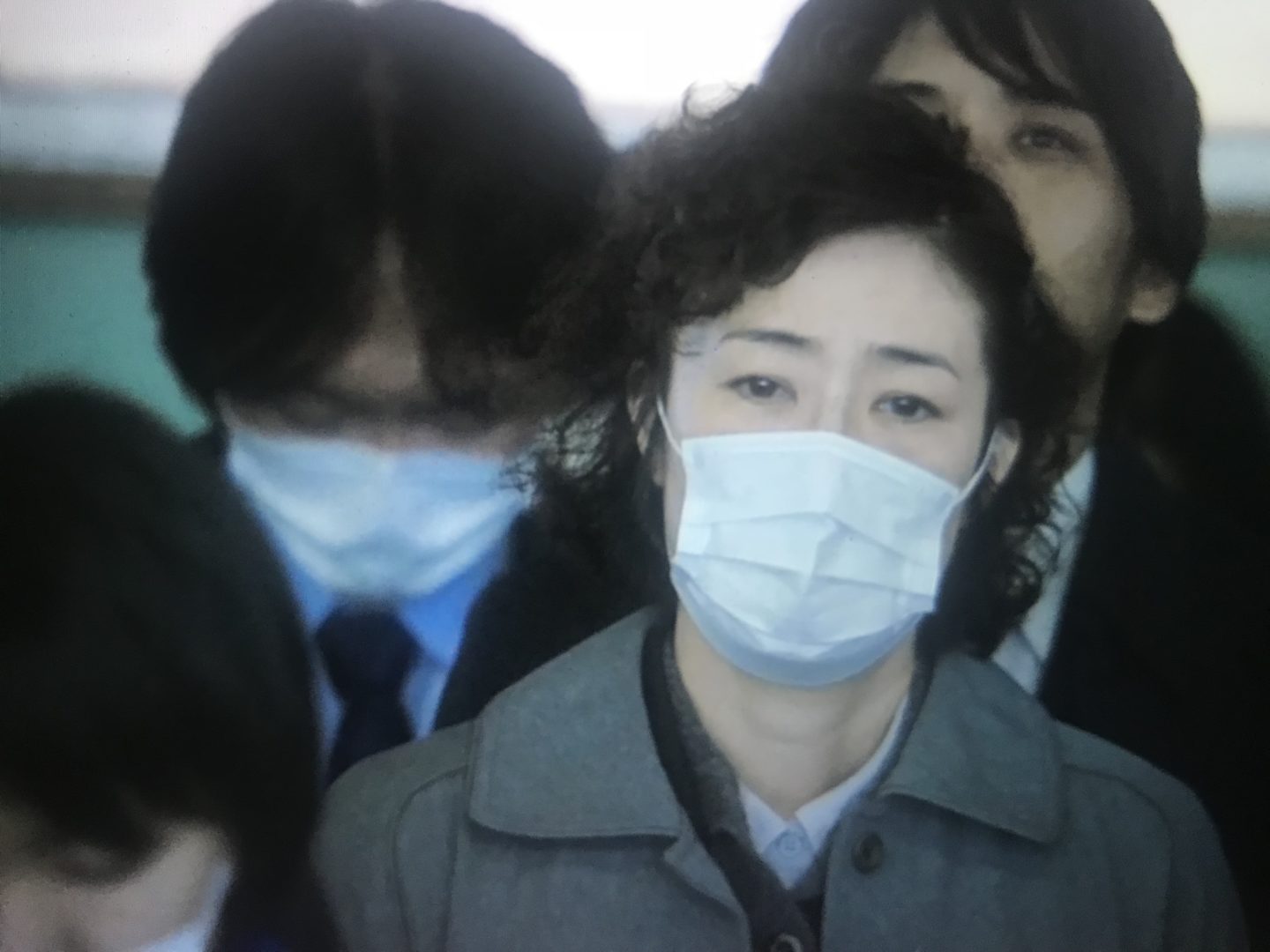It’s almost a blessing and a curse when the appetite for affection you’ve suppressed for so long suddenly rears its urgent pangs. Such is the case for the anti-heroine of Oh Lucy!, Setsuko Kawashima (Shinobu Terajima), a middle-aged woman living in Tokyo who embodies the broken spirit of an office worker who has surrendered to an average life. Her great tragedy of existence (seeing as how we all have one) is that her sister, Ayako Kawashima (Kaho Minami), stole her boyfriend and married him, eventually having a daughter named Mika Ogawa (Shiori Kutsuna), who appears, on the surface, to share a special bond with her aunt. It is for this reason that she asks Setsuko to do her a favor and take on the English lessons she can’t finish thanks to her job at the maid cafe (because the Japanese love to appeal to fetishes). Since the school won’t refund the 600,000 yen ($5,425 dollars, roughly) she paid, she opts to take the latter route to get her money’s worth in transferring the class to another.
Setsuko is naturally reluctant at first, fearful of allowing the congenital emotional barriers of being Japanese to come down. But upon her first lesson with John Woodruff (the forever “dreamy” Josh Hartnett), she finds her walls crumbling, particularly since constant hugging is a part of his curriculum. It seems she had no idea how much she had been missing a man’s embrace until John came into her life. An while, yes, there is one other student in the class, Takeshi Komori (Kōji Yakusho) a.k.a. “Tom,” it is only John that “Lucy” (for that is the name she draws out of a hat) has eyes for. Thus, you can imagine the expression of disappointment (which you kind of have to through the surgical mask she’s forced to wear like everyone else in public places) when just as she’s decided to live devil-may-care and don the blonde wig John has given her to get into the spirit of her American alter ego, she finds that he’s abruptly quit and that, to boot, he’s absconded for Los Angeles with her niece, the far more desirable Mika (because tighter pussy is always more desirable).
Enraged to have lost the source of her lust for life so quickly, Setsuko decides to go to the farewell party of one of her fellow aging single co-workers, Yoshiko (Miyoko Yamaguchi), after all. And as Yoshiko gleefully tries to get Setsuko to join her in a round of karaoke, the former tells her just what, exactly, everyone at the office really says about her behind her back. This, inevitably, opens up a can of worms about Setsuko’s overall “bad attitude” (but then, what kind of attitude can one really expect you to have in an office setting?).
It feels right, then, that the arrival of a postcard from Mika with a return address indicating her (and therefore John’s) whereabouts should give her a new sense of direction and purpose. Much like Doris in Hello, My Name Is Doris, Lucy lives in the squalid conditions of a lonely hoarder, embarrassed of her life but unwilling to change it. When her sister comes knocking on her door to repay her the money she feels Mika owes her for the now botched English lessons transfer, Setsuko willingly gives up the information of her plans to leave for California the next day to visit Mika. As such, an unwanted sister trip is formulated with Setsuko taking pills and quickly telling the stranger, Hannah (Megan Mullally), sitting between them on the plane that Ayako stole her boyfriend (who ended up leaving her after causing all that drama anyway).
As the stakes of the trip escalate, with Ayako consistently pointing out examples of Setsuko’s selfishness and that this is the reason she was never able to get married, John is put in the middle of it all like a little toy. A little white sex toy. That’s what most Caucasian men are anyway, especially to the Japanese women that at least know well enough to capitalize on the fetish. For Lucy, however, the love she feels for John is pure, and (largely) unmotivated by any hidden pretense. This is precisely why she eventually makes no point to hide her ardent emotions for him, making him an offer he literally can’t refuse (and one that proves it’s impossible to rape a man), in addition to also getting the same tattoo as his (a cheesy one that reads “love” in Japanese–it’s super humiliating to watch this turn of events unfold, as you can literally feel the rejection emanating from John as she shows it to him).
With Lucy’s craving for a combination of acceptance and light revenge (the retribution she feels owed for Ayako taking her boyfriend all those years ago and therefore her alternate universe trajectory) reaching unanticipated peaks, she at one point, still finds time to send Tom a postcard from a grody motel in San Diego. And it’s this sending of a postcard that, once again, alters the course of her timeline, just as Mika’s postcard to her did previously.
Atsuko Hirayanagi, who wrote and directed the film, deftly weaves the sentiment of desperation and unfulfilled potential (for Lucy does, after all, have so much love to give–it’s just that no one will receive it) like a thick yet invisible thread that hangs over the story, which so often dares to make us increasingly uncomfortable as we come to terms with how many times we ourselves have prostrated our bleeding heart to another in the hope of reciprocation. In short, will someone, anyone please love me despite my flaws?






















